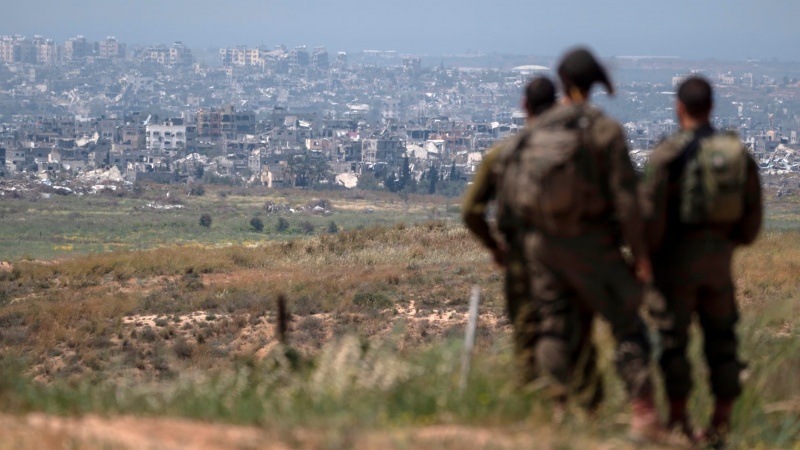AhlulBayt News Agency: While before the start of the Israeli regime's large-scale invasion of Lebanon, nearly 70% of Zionists were in favor of this attack, but after the Lebanese resistance imposed field equations, the Israeli public's view changed sharply.
During the first year of the Zionist regime's war against the Gaza Strip, public opinion in the Occupied Territories continued to demand that the cabinet declare war on Lebanon with the aim of destroying Hezbollah, and 67% of Zionists spoke about the need for war with Lebanon two months ago. However, after the start of the large-scale war by the occupying regime against Lebanon and the start of its ground operations, their views changed.
The Zionist regime's army had set a time frame for a ground invasion of Lebanon within 2 to 3 weeks before the attack, and believed that Hezbollah would be forced to stop its missile attacks on northern occupied Palestine.
The Zionists also thought that with the start of a large-scale war against Lebanon, they could destroy Hezbollah's structure, disarm it, and force it to retreat behind the Litani river, and ultimately, the displaced people of the northern front who had fled in fear of Hezbollah's attacks could return to these areas.
However, the Zionist regime was unable to occupy even a small village in Lebanon after a month and a half of ground attacks, and in addition, the army suffered heavy casualties in clashes with Hezbollah fighters and is still trapped in the Lebanese resistance's ambushes.
At the same time, Hezbollah's devastating missile and drone attacks on northern occupied Palestine continued to Tel Aviv.
With the Zionist army's consecutive defeats in southern Lebanon in the weeks following the start of the ground invasion, the support of Zionist settlers for the war with Lebanon decreased from 67% to 46%, which is due to the steadfastness of the Lebanese resistance forces in the shadow of popular support for the resistance and the unified political stance of Lebanon, which disrupted the occupiers' calculations.
In a situation where even the residents of Tel Aviv were forced to flee to shelters constantly in fear of Hezbollah's attacks, one of the settlers in the "Kiryat Ata" settlement in northern occupied Palestine mocked the Zionist regime's war minister, saying: "Is this the victory Israel has achieved against Hezbollah? How has Hezbollah been defeated when it can fire 90 missiles in half an hour? We want officials to stop insulting our intelligence with fictional stories of victory."
However, Yona Yahav, the mayor of Haifa, stated after Hezbollah's repeated heavy attacks on the city: "Hezbollah has threatened to turn Haifa into a Kiryat Shmona, and all its residents will be forced to flee. Currently, Haifa's economy is severely collapsing, which will have a negative impact on all sectors."
The Zionist newspaper "Yedioth Ahronoth" also reported that more than 80% of small business owners in eastern Galilee and the Golan have faced a sharp decline in income since the start of the war, and more than 65% of them suffer from a halving of their income.
The war has also paralyzed the industry, agriculture, trade, and tourism sectors in the northern front, and between October 2023 and August 2024, the Zionist cabinet paid more than $1 billion in compensation to northern companies. However, this amount does not include direct damages from Hezbollah's missile and drone attacks.
With the apparent attrition of the Zionist regime's achievements in assassinating Hezbollah leaders and commanders, and following the failure of the occupying Israeli army's ground operations in southern Lebanon, the Zionist settlers, who are forced to receive new bodies of the army every day, are demanding an end to the war.
/129
20 November 2024 - 15:22
News ID: 1506560

While before the start of the Israeli regime's large-scale invasion of Lebanon, nearly 70% of Zionists were in favor of this attack, but after the Lebanese resistance imposed field equations, the Israeli public's view changed sharply.
